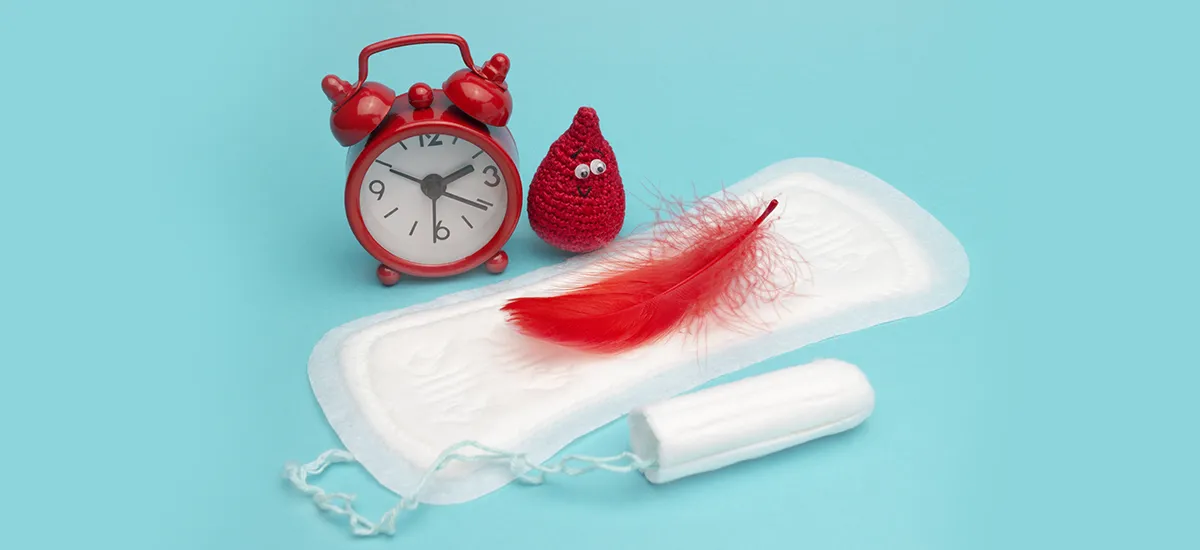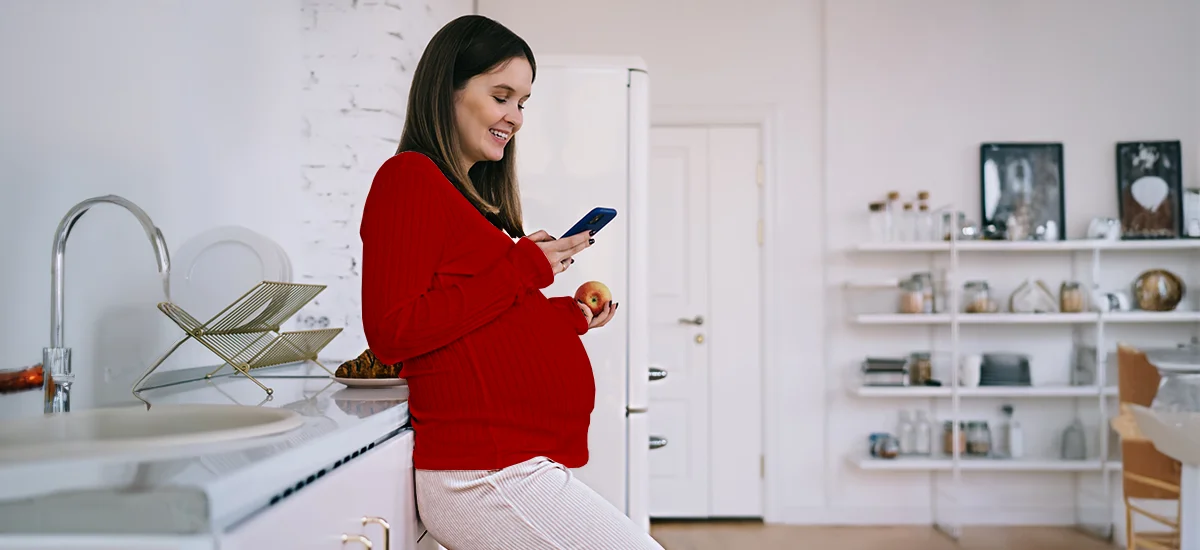Menstruation is a natural biological process experienced by all women. And, as we all know, it is often shrouded in secrecy and stigma. However, understanding and maintaining proper menstrual hygiene is crucial for our overall health and well-being throughout the reproductive years. This guide aims to empower you with knowledge about menstrual hygiene practices, product choices, and ways to manage discomfort. By prioritizing hygiene and open communication, we can dismantle taboos and create a culture of confidence and support surrounding periods.
The vagina is a delicate ecosystem with natural flora that protects against harmful bacteria. During menstruation, the menstrual flow can disrupt this balance, creating a risk of infections if proper hygiene is not maintained. Here are some key benefits of good menstrual hygiene -
· Improper hygiene can lead to urinary tract infections (UTIs), vaginal infections (yeast infections, bacterial vaginosis), and even pelvic inflammatory disease (PID).
· Maintaining cleanliness minimizes irritation and odor, allowing you to feel fresh and comfortable throughout your period.
· Knowing you are taking care of your health can boost your confidence and self-esteem during your period.
· Good hygiene ensures you don't have to limit your daily activities due to menstrual discomfort.
A few ways you can take care of yourself include,
· Wash your vulva (external genital area) with warm water and a gentle, fragrance-free soap at least twice a day. Avoid douching or using harsh soaps that can disrupt the natural balance of the vagina.
· Change your menstrual product (pad, tampon, cup, etc.) every 4-8 hours, depending on the flow and product type. Leaving a product in for too long can increase the risk of infections.
· Always wipe from front to back to prevent bacteria from entering the vagina.
· Opt for breathable, cotton underwear that allows for proper airflow and prevents irritation.
· Wrap used menstrual products in toilet paper and dispose of them properly in a bin. Don't flush tampons or pads down the toilet, as they can clog the plumbing.
Menstrual hygiene isn't limited to just your period days. Here are some additional practices for overall hygiene,
· Shower or bathe daily, paying extra attention to the vulva.
· Drinking plenty of water helps flush out toxins and prevents UTI symptoms.
· A balanced diet rich in fruits, vegetables, and whole grains promotes overall health and supports the immune system.
Menstrual cramps, bloating, and mood swings are common experiences during periods. Here are some tips to manage discomfort,
· Medications like ibuprofen or acetaminophen can help alleviate cramps. However, always consult with your doctor before taking any.
· Applying heat to your lower abdomen can help relax muscles and ease cramps.
· Light exercise can improve blood flow and reduce cramps.
· Yoga, meditation, or deep breathing can alleviate stress and improve overall well-being.
Talking about menstruation openly can normalize it and create a supportive environment for women to share experiences. This can be especially helpful for young girls navigating their first periods. Encourage open communication with family members, friends, and healthcare providers.
With a wide variety of menstrual products available, finding the right fit can feel overwhelming. Here's a breakdown of some popular options to help you make an informed decision,
· Sanitary pads - These are absorbent pads that adhere to your underwear, collecting menstrual flow. Pads come in various sizes and absorbencies to suit your needs. Opt for breathable cotton pads to minimize irritation.
· Tampons - These are inserted into the vagina to absorb menstrual flow internally. Choose the appropriate absorbency based on your flow and change them every 4-8 hours.
· Menstrual cups - These reusable silicone cups collect menstrual flow internally and can be worn for up to 12 hours with proper care. Cups are an eco-friendly option and may be cost-effective in the long run.
· Period underwear - These are specially designed underwear with built-in leakproof layers, offering a comfortable and absorbent alternative to pads or tampons.
The takeaway: Embrace your cycle with confidence
Menstrual hygiene is not a luxury but a necessity for every woman. By implementing these practices, choosing the right products, and prioritizing open communication, you can manage your period effectively and with confidence.
Remember, there's no "one size fits all" approach to menstrual hygiene. The key is to find practices and products that empower you to manage your period with confidence and comfort. In addition, ensure you have a women health insurance plan that covers gynecological issues to help you seek the right medical help for any issues without worrying about finances.

Ayushman Bharat, launched in 2018, is one of India's most ambitious healthcare initiatives. It provides accessible and affordable healthcare to millions of citizens across the nation. A...
Read More
Are you giving your breast health the attention it deserves amid your busy schedule? Important, yes, but often overlooked amidst a busy schedule. Simple breast care and...
Read More
Pain and discomfort are indeed a part of the package of being a woman but they can be managed through information and medical help. Women's health awareness...
Read More
Menstruation is a natural biological process experienced by all women. And, as we all know, it is often shrouded in secrecy and stigma. However, understanding and maintaining...
Read More
Have you ever felt like your emotions are on a rollercoaster ride at certain times? It could be your hormones! Hormonal fluctuations play a powerful role throughout...
Read More
Migraine headaches are a prevalent neurological condition often characterised by intense throbbing pain on one side of your head, accompanied by nausea, vomiting, and sensitivity to light...
Read More
Bringing new life into the world is undeniably one of the most miraculous journeys a woman can embark upon. It's a profound blend of joy, anticipation, and...
Read More
Invisible yet insidious, air pollution is a stealthy threat that weaves itself into the very breath we take. It's a cocktail of harmful gases and particles that...
Read More
Water is the elixir of life. Yet, polluted water can steal the well-being of millions, particularly women and girls. The effects of water pollution are far beyond...
Read More
Starting a family is one of the best feelings in the world. Unfortunately, some women face challenges when trying to start a family. But why is that...
Read More
Section 80D of Income Tax is an important provision for claiming health insurance tax benefits for individuals and families (including Hindu Undivided families, i.e., HUF). It provides...
Read More
A zillion questions pop in the head as soon as you get the good news. What should I eat? What should I avoid? Work life balance? Should...
Read More
Regarding health insurance, top-up and regular health insurance plans are two prevalent options. While both provide coverage for medical expenses, there are some important differences. Regular health...
Read More
What is the Mahatma Jyotiba Phule Jan Arogya Yojana? The Mahatma Jyotiba Phule Jan Arogya Yojana (MJPJAY) is a health insurance policy run by the Maharashtra government...
Read More
World Cancer Research Fund Internation found around 18.1 million cancer cases globally in 2020. Of these cases, 9.3 million were linked to men, and 8.8 million were...
Read More
Picture this: It's a cosy Sunday morning, and you're curled up with a cup of coffee, scrolling through your social media feed. Amidst the clothing videos and...
Read More
In today's dynamic world, navigating the complexities of health insurance can be daunting for many of us. This is where HIPAA comes into the picture. HIPAA stands...
Read More
Women's mental health is a complex dance between societal expectations and biological changes. Societal pressures to be perfect caregivers and achieve career success can create overwhelming stress....
Read More
It is a relief when your period shows up on time, but sometimes you wish it came sooner rather than later. Sometimes, you are thinking, "How can...
Read More